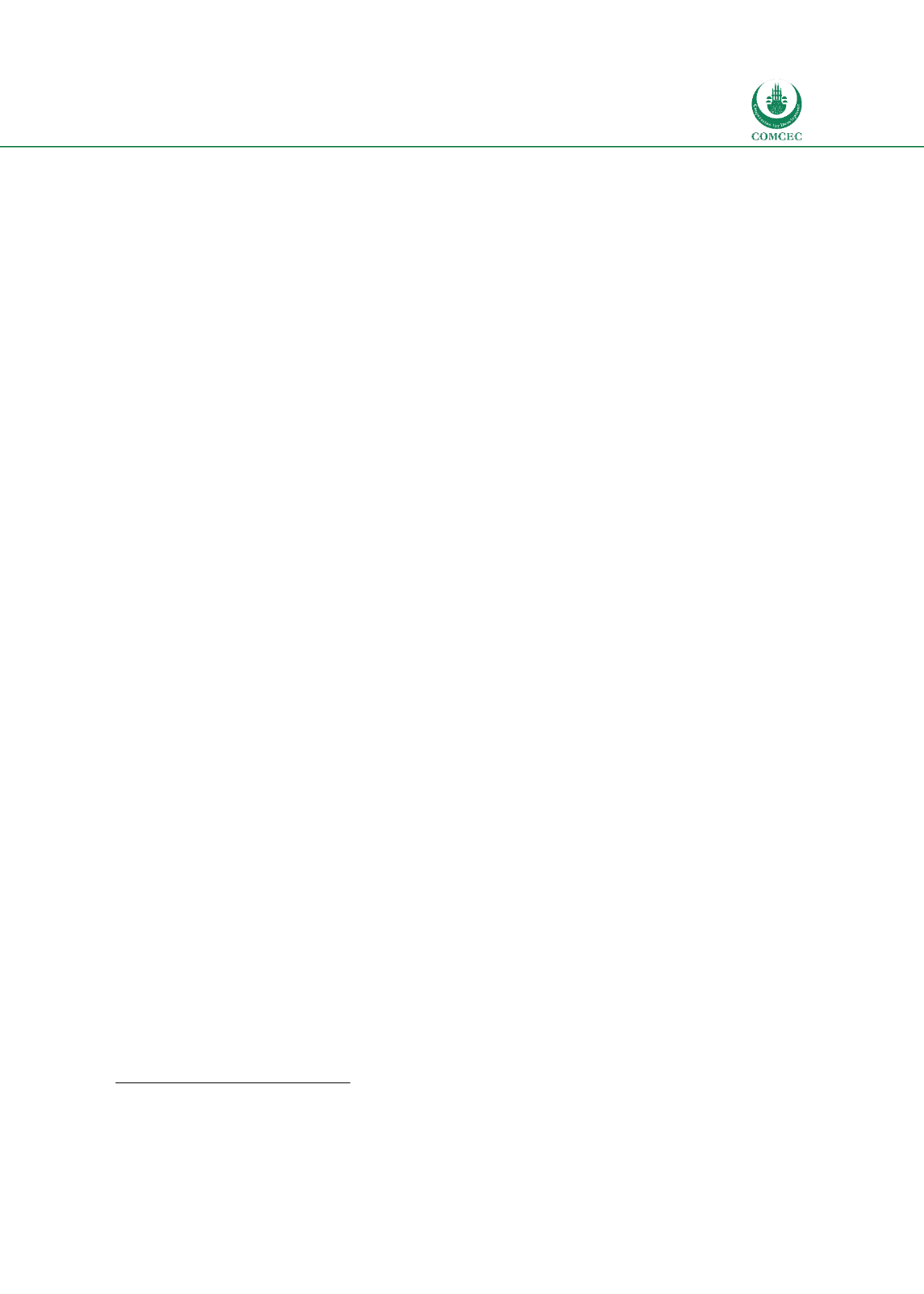

National and Global Islamic Financial Architecture:
Prolems and Possible Solutions for the OIC Member Countries
175
organised two conferences on Islamic finance, in 2009 and 2012 but these were largely for the
purpose of advancing its own understanding (BaFin 2009 and 2012).
Following the first of these conferences, an article in BaFin’s quarterly bulletin for Q4 2009
quoted the then President of BaFin as saying that BaFin “wanted to lay the regulatory and
supervisory groundwork for Shari’ah-compliant products within the scope created by
legislation. Basically there were no obstacles under supervisory law preventing the
establishment and licensing of an Islamic bank” (BaFin 2009). This was, in context, a statement
that Islamic banking at least could be accommodated within existing law. The account of the
second conference given in the bulletin for Q2 2012 was even less forthcoming and treated the
conference as essentially a fact-finding exercise (BaFin 2012). Germany has thus not pursued
an active strategic approach to Islamic finance and has not adapted its laws or regulations to
accommodate it.
Nevertheless, in 2009, BaFin accepted a request from a foreign institution, Kuveyt Turk, to
conduct banking operations within the country in accordance with Islamic principles. (ECB
2013) The operation was set up in Mannheim in 2010 but without a full banking licence. The
range of offerings therefore remained limited. The firm applied for a full banking licence in
2012 and this was finally granted in 2015. KT Bank AG therefore opened its first branch, in
Frankfurt, in mid-2015 and has expressed ambitions to expand into Eastern Europe.
In capital markets, Germany was the first Western country to tap the Islamic capital market
when the federal state of Saxony-Anhalt issued the country’s first
sukuk
in 2004. The paper
attracted strong demand and was fully subscribed, with 60% of the issue going to investors in
Bahrain and the UAE and the remaining 40% to investors in Europe, particularly those in
France and Germany. The €100 million Ijarah sukuk was fully redeemed in 2009. (ECB 2013)
However, the sukuk were issued and listed in Luxembourg and this initiative can be seen as an
attempt to tap a new market by one of the financially weaker German states rather than as a
strategic initiative. This has not been followed up. The German insurance firm FWU has,
however, issued two modest sukuk tranches, but again in Luxembourg where it has a long-
standing operation (Reuters 2013). On the other hand, although it does not publish relevant
statistics, Frankfurt has been a popular exchange on which to list international sukuk (which
commonly have multiple listings.)
There are a few Islamic collective investment schemes (CIS) offered in Germany, but few if any
domiciled there. Similarly, there appears to be no Takaful offering there.
On the other hand, German financial institutions are prominent in the Islamic finance industry
via their operations outside Germany. Deutsche Bank has been an active participant, though in
structuring and support services rather than in offering banking products. However, its core
Islamic finance structuring team is based in Dubai and Doha with resources in London and
Kuala Lumpur.
51
In insurance/Takaful, Munich Re is the world’s largest reinsurer and has a significant Retakaful
operation, but this is based in Kuala Lumpur (Munich Re 2012). Hannover Re is also an
important reinsurer with a Retakaful operation based in Bahrain.
52
Allianz, Europe’s largest
insurer, based in Munich, had a Takaful operation based in Bahrain, but in 2011 transferred a
majority share to the local operator MedGulf.
53
Its life operation in Indonesia continues to offer
51
Source Deutsche Bank website:
https://www.db.com/mea/en/content/islamic_finance.htm.52
http://www.bloomberg.com/research/stocks/private/snapshot.asp?privcapid=30598160.53
http://www.medgulftakaful.com.bh/pressmed.html.















